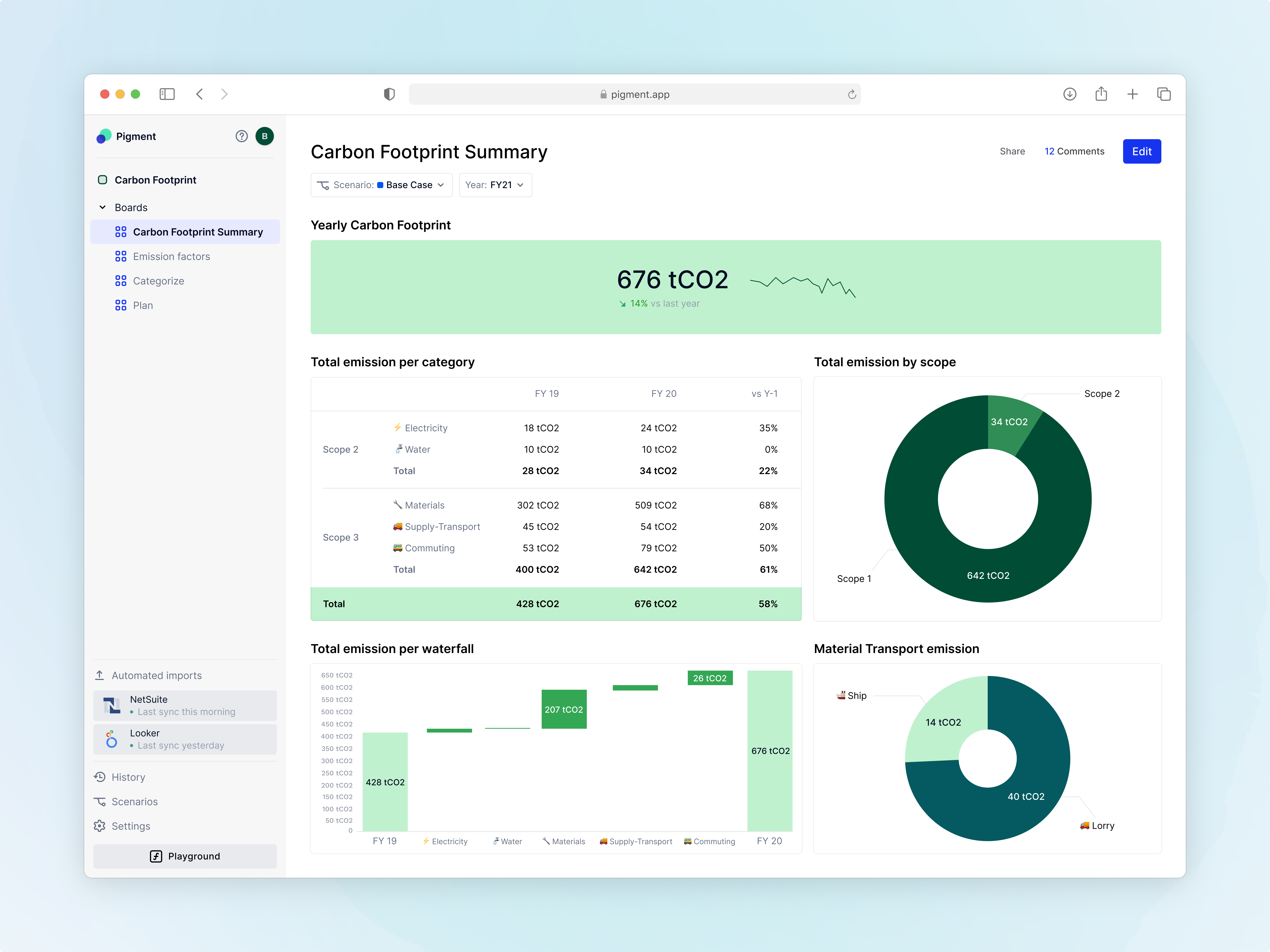Pigment secures $88 million for its business planning tool that will make you forget about Excel
Paris-based startup Pigment has raised a Series C round of $88 million — the investment was led by Iconiq Growth. Pigment wants to take on Microsoft Excel and offer a business planning platform that works better than products from enterprise software behemoths, such as Oracle or SAP. It’s a new take on a critical product for large companies that need to forecast, budget and build comprehensive reports.
In addition to Iconiq Growth (which previously invested in companies like Adyen, Datadog, Gitlab, Miro and Snowflake), existing investors Meritech, IVP and FirstMark are investing in Pigment once again. Julien Codorniou, who is an angel investor in Pigment, is now also investing in the startup through his VC firm Felix Capital.
The best way to describe Pigment is by describing what it can do. It’s a flexible product that can be used by multiple teams in big companies. Chief financial officers — and finance teams in general — use it to gather all business data to create reports and plan for the future.
Sales team leaders can use it to track quotas and see how everyone is performing against quarterly quotas. HR teams can see how they should scale the workforce up and down based on strategic changes and financial objectives.
Just like Microsoft Excel, Pigment wants to be a generic tool. If you want to use it for carbon accounting and track your total emissions, you can start importing data and create a dashboard for that use case. Pigment also recently added a new spreadsheet view so that Excel users feel right at home when they are typing formulas.
Image Credits: Pigment
But what makes Pigment different from Microsoft Excel is that it’s a live product. Pigment has built connectors with dozens of enterprise software products, including ERPs (Netsuite, SAP, Sage Intacct, Xero), HR information system (Workday, BambooHR, etc.) and data lakes (Snowflake, AWS Redshift, Google BigQuery). Pigment also integrates with Salesforce, and more connectors are on the way.
Once the data is imported, teams can build their own views, create dashboards and generate reports just like they would do in Excel. The difference is that data will be regularly synchronized and updated across all views.
As a modern software-as-a-service product, Pigment is also collaborative. For instance, the finance team can ask questions to the HR team to understand why a particular budget is so high. Users can then create ‘what-if’ scenarios and estimate how some changes would affect the business without messing with the main dashboards.
An accidental funding round
Here’s what I wrote when I covered Pigment’s previous $65 million round:
Pigment’s co-founder and co-CEO Eléonore Crespo told me that she doesn’t need to raise more money to turn her company into a long-term, stable business. Of course, market conditions could change and Pigment could end up raising more next year.
I talked to her once again and asked her why she raised a Series C so quickly after the previous funding round. “We weren’t raising money at all. Here’s how I work: I try to have investor catch-ups once a year with potential investors for the next round. Several American funds told me ‘we’d like to invest now and offer you great terms. You have a product that is truly mission critical for any company,’” Crespo told me.
She also mentioned that they still have a lot of cash in the company’s bank account, but you have to raise when the terms are right and market conditions are tough. “We still had all the money from the previous round and even a little from the round before that,” she said.
While Pigment isn’t disclosing the valuation of the company after this round, it is still growing despite the difficult market conditions when it comes to startup funding.
That’s because Pigment has grown its revenue by 600% in 2022 compared to 2021. Some well-known companies are using the platform, such as Klarna, Miro, Airtable, Figma, Webhelp, Poshmark, Eventbrite, Mozilla and an unnamed French CAC40 public company.
In particular, CFOs like the product and talk about it with other CFOs. Once a business unit or a subsidiary starts using Pigment, other teams tend to create accounts and use the product as well. Only 10% of Pigment’s clients use the product exclusively for financial planning.

Image Credits: Pigment
Up next, the company is working on Pigment AI. The startup signed a partnership with OpenAI and is using the GPT-4 API to query data using natural language. For instance, customers will be able to identify trends and obtain key information without having to dig in the different views.
“The next step, which is going to be absolutely magical, is optimized business scenarios. Your investors are asking you to achieve 10% growth this year, but you need to optimize your costs and keep a large margin. What’s the best scenario for that?” Crespo said.
The product is currently available in beta and it will be rolled out to everyone later this year. Crespo describes Pigment AI as a productivity tool so that you can save time when you’re building complicated models — but it isn’t going to make decisions for you. “Humans have to be there to keep all the intelligence. It’s something to help you make the decision, but not to make it for you,” she said.
Pigment secures $88 million for its business planning tool that will make you forget about Excel by Romain Dillet originally published on TechCrunch





